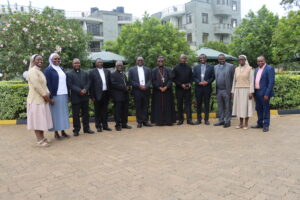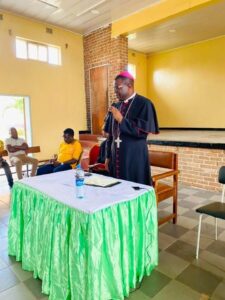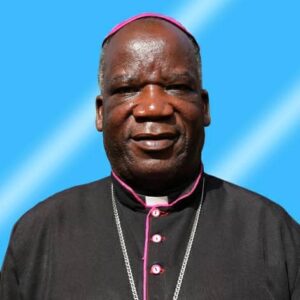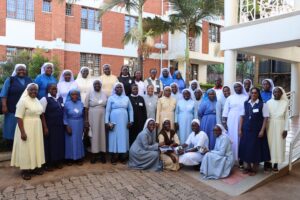AMECEA: Executive Board Reflects on Previous AMECEA’s Plenary Resolutions

Sr. Jecinter Antoinette Okoth, FSSA
The executive board members of the Association of Member Episcopal Conferences in Eastern Africa (AMECEA) during their two-day meeting held at Kenya’s capital Nairobi, discussed some of the resolutions made last year in Dar es Salaam, Tanzania during the bishops’ 20th plenary assembly, to come up with a way forward for implementation.
“This meeting helps us sit, reflect, and discuss resolutions that need to be worked on and be able to implement them for greater nourishment of the membership as well as empowerment of the sectors that are supposed to be covered by the resolutions,” AMECEA Chairman Bishop Charles Sampa Kasonde said in an interview Wednesday, October 18.
He added, “The executive board provides an opportunity to bring us together as delegates and the secretariat to look at the issues we have assigned to ourselves during the main meeting on how far we have implemented them as resolutions. The resolutions are important as they provide a platform in the consultation of our unity and also focus on what we engage to carry out together so that as we implement them, we evangelize to God’s people.”
According to the Local Ordinary of Solwezi Diocese, Zambia, the executive meetings help identify some resolutions and develop a framework that helps run the life of AMECEA as a grouping of member Episcopal conferences in the Eastern Africa region.
During the meeting held from 17-18 October, the Chairman highlighted various issues of importance that the board looked at including; the Silver Jubilee celebration of Blessed Bakanja AMECEA College which is a regional seminary owned by AMECEA, the Golden Jubilee of the establishment of Small Christian Communities (SCCs) in the region, and the need to have policies for child safeguarding and for vulnerable adults: the elderly, the sick the poor who are at times not given a platform.
The Bishop disclosed that there is a clarion call for the region to come up with safeguarding policies for seminarians and the seminaries saying, “The problem of abuse is a human problem that is happening at a very high rate, especially in families. So our concern is how to address it and find better ways to safeguard our children and vulnerable adults. In this case, the seminaries should have their policies, the conferences their policies, as well as the dioceses.”
Another area of concern was how the region should rejuvenate catechists in their evangelization.
“Our catechists who are the foot soldiers support the work of evangelization even where the priests fail to go. Our concern therefore is how to revitalize their lives,” Bishop Kasonde said emphasizing that in a number of dioceses, the income for catechists’ sustainability is minimal yet they fully support the pastoral life of the Church.
He disclosed the intention of having a meeting next year with Missio Aachen in Germany to reflect more on this need and review the formation given to catechists.
He further appreciated that the Catholic University of Eastern Africa (CUEA), an institution of higher learning owned by AMECEA will be graduating close to 3,000 students, saying, “It is a great empowerment and a moment that helps the region reflect how well we are doing in education.”


